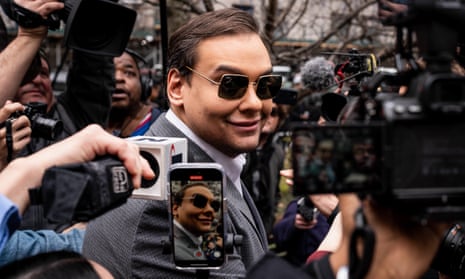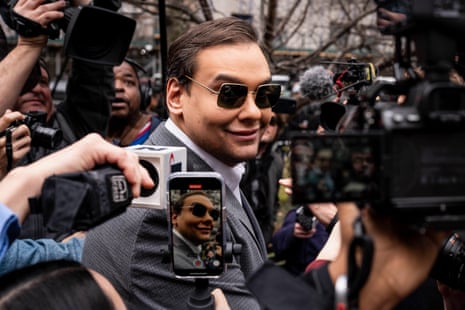Tottenham fans quickly took Ange Postecoglou and his ideas to heart. Photo: Getty Images/Will Palmer
Ange Postecoglou's unusual career includes around 2007, when Tottenham's new mobile manager was out of work and began to wonder if he would ever be able to get out of what he called “coaching desert.”
It came at a time when Australian domestic football was enjoying new life with the launch of the then eight-team A-League, none of which appointed Postecoglou. He won the title twice as coach with South Melbourne Hellas in the old days of the National Football League, but it seemed to matter little.
The coach, who will lead an unbeaten Spurs side into the North London derby against Arsenal on Sunday, coached schoolchildren and amateurs in Melbourne parks to keep busy, as he recalled in his 2016 autobiography. He was no enthusiastic novice – he won Australian titles as a coach and player and coached the country's junior teams. He never doubted that he would eventually succeed, but, in his own words, during these 13 months, “I sometimes indulged in melancholic questions about what I should do next.”
Postecoglou's autobiography, written while he was Australia's coach, is a thoughtful treatise on the development of the game in that country, as well as his own life. He only got the A-League job with Brisbane Roar because their coach Frank Farina, a former Australian international and short-time player at Notts County, was charged with drink driving. The club was forced to sack Farina, and Postecoglou's influence on the team's fortunes was so significant that he never looked back – at least in Australia.
Fourteen years later, Spurs stumbled upon Postecoglou after Julian Nagelsmann and Arne Slot turned them down and they interviewed Luis Enrique. Despite his success at Celtic, Postecoglou may never have gotten an interview with Spurs if it weren't for his agent Frank Trimboli, who is one of the big players in the business. Chelsea briefly considered him when it came to their latest appointment, but he was never interviewed. Crystal Palace also took note of this before re-appointing Roy Hodgson.
 Postecoglou during a training session with the Australian team Melbourne Victory in 2012. Photo: Getty Images/Robert Prezioso
Postecoglou during a training session with the Australian team Melbourne Victory in 2012. Photo: Getty Images/Robert Prezioso
Daniel Levy was delighted to speak at a forum of Spurs fans this week, most of whom are currently quiet, but the Spurs chairman would never have considered appointing Postecoglou, who was not featured not on any of the first final lists.
Following his policy of disarming honesty, Postecoglou never tried to hide it. Indeed, in an interview with the BBC this week, he happily declared that he was the “last man standing” at both Celtic and Spurs. Watching this brings back memories of the Football Association's painful attempts back in 2006 to repeat through clenched teeth the mantra that Steve McClaren was their first choice to coach England. The world knew that this was not so.
The Postecoglou era is still in its early days at Spurs. Indeed, given Spurs' performance at the Emirates, Sunday could be a downer, or it could be another giant leap forward. However, the sense of hope generated by the new manager is strong enough to overcome the old one. In any case, Postecoglou's arrival once again opens up the question of what a good appointment looks like and how to find talented coaches and managers.
The 58-year-old, with experience in Australia, Japan and Scotland, feels like a risk-taker but, as always, it's more about the man and what he's done with the opportunities he's been given. It's a similar story with Graham Potter and then with his successor at Brighton, Roberto De Zerbi. They both had relatively modest careers before getting the opportunity to play in the Premier League, but Brighton judged them not on the size of the clubs they managed, but on what they did with the resources they had. What happened to Potter at Chelsea seems less of a reflection of his ability, given what followed.
 No previous English language experience Football was an obstacle for Roberto De Zerbi at Brighton. Photo: Reuters/Molly Darlington
No previous English language experience Football was an obstacle for Roberto De Zerbi at Brighton. Photo: Reuters/Molly Darlington
What could others learn? One would imagine that at Manchester City Pep Guardiola's succession plan is being approached with the same intensity that one would expect from formulating government fiscal policy. And why not? There is no more important decision for any club. It would be dangerous to assume that someone suitable might just be at hand when the moment comes.
Clubs need a collegial approach and a manager who can work with their recruitment strategy. They want someone who won't blame others at the first sign of trouble. They need a manager who can handle the multi-million dollar corporations also known as footballers, but that doesn't mean those same footballers can be endlessly pandered to. Establishing the power of a manager has always been difficult, no matter what era it may be in. They also need a good coach.
In the current coaching era there are many former famous players, but increasingly there are those who belong to a completely different profile: Jurgen Klopp, De Zerbi, Steve Cooper, Unai Emery, Thomas Frank, Hodgson, Eddie Howe, Erik ten Hag and Postecoglou. Also. All of them had some degree of struggle – or at least the feeling that there was something about them that could be a disqualifying factor when it came to the very elite end of the game.
There is a moment in everyone's career these managers when they figuratively reach the top of the hill and the game – its chairmen, executives, media and fans – looks at them differently. This is an unspoken criterion, but it exists. The most difficult thing is to discover abilities at an early stage. It is curious that Guardiola, despite all his stunning successes, had the same thing. As a well-known former player, he supported the wrong candidate in Barcelona's 2003 presidential elections and therefore wondered whether he would ever work for the club.
His former teammate Txiki Begiristain, who supported the winner Joan Laporta and, as a result, received the position of sporting director, ultimately still giving Guardiola a place at Barça B. Given their strong partnership, this was by far the best decision Begiristain had ever made. However, at that time this was not obvious.





























































Recent Comments